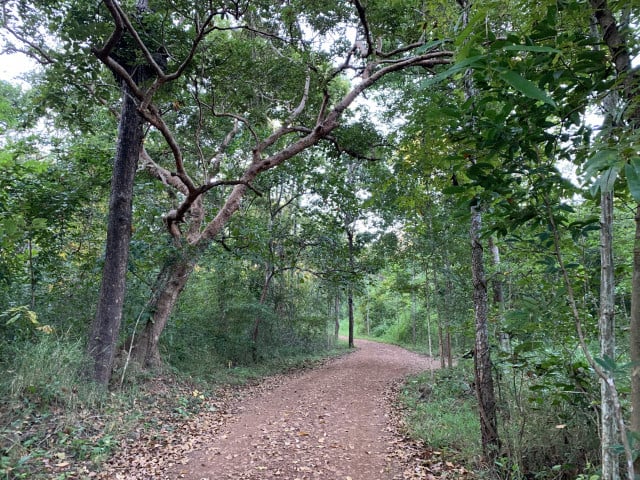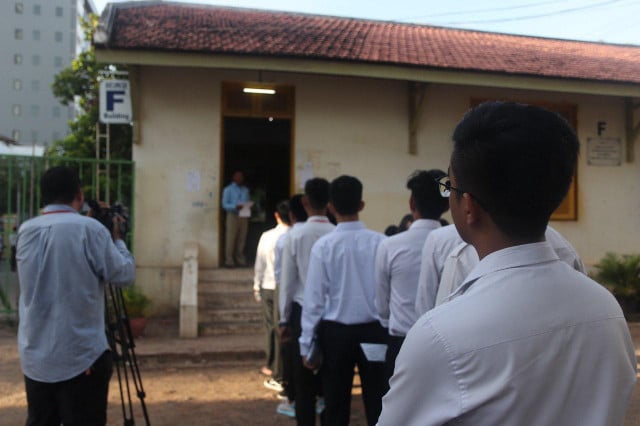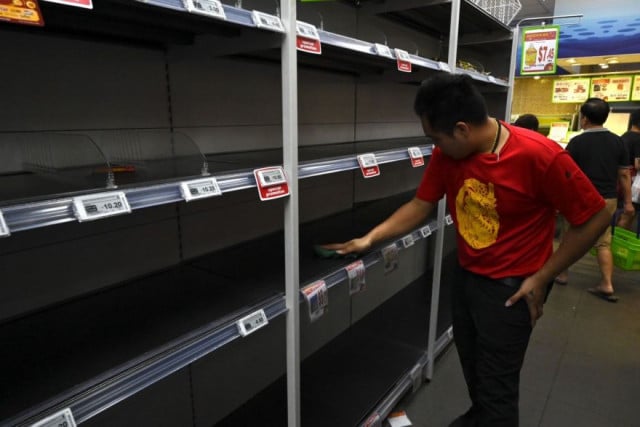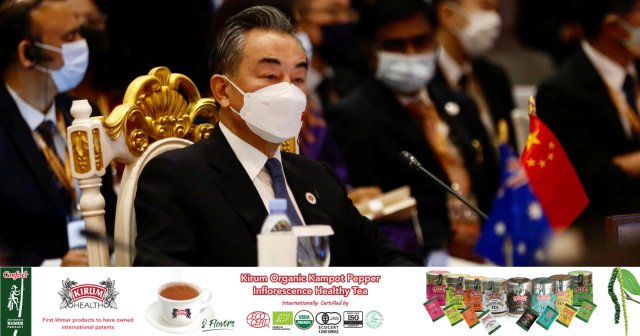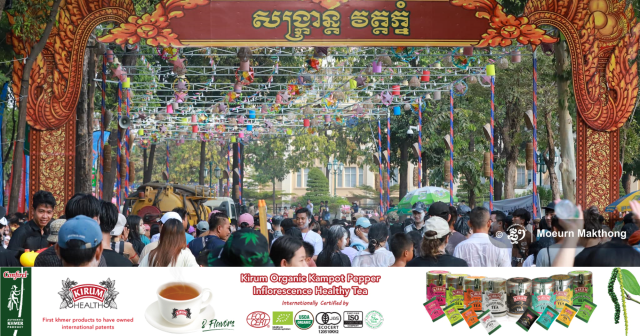Culture of Debate in Cambodia Should Be Further Promoted
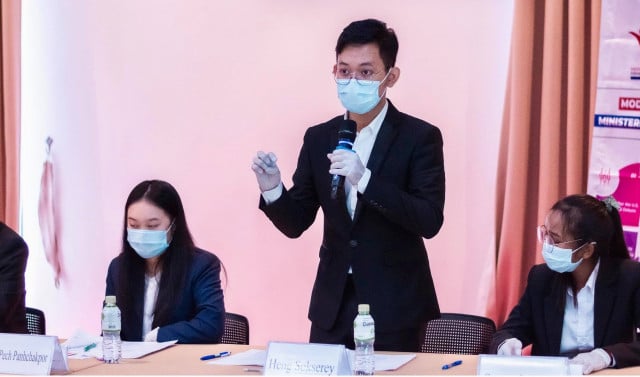
- Thien Phearin
- December 8, 2020 4:26 AM
As a third-year student at Department of International Studies, Institute of Foreign Languages, Royal University of Phnom Penh, Heng Sokserey has been actively taking part in the IFL debate club. Sokserey and his teammate recently obtained the first prize of the 8th National Debate Championship 2020 hosted by the National Debate Society Cambodia. Sokserey sat down with Cambodianess to share his experiences on debate skill and why the debate culture should be widely promoted.
Thien Phearin: First and foremost, why did you decide to join the IFL Debate Club?
Heng Sokserey: I have always loved debate and have debated before, since I was in high school. It was fun to prepare for a debate in class and getting to debate with others but I did know much about debate to be a good debater. I was not following any formal structure or think I can compete with other debaters. When I heard about the IFL Debate club and what the club offers, I immediately want to apply. I want to improve my debate skills and learn more about the process and the structure. I think it is also because I know that debate can help me in my academic journey.
Thien Phearin: As a member of the club, can you share with us what are the benefits of being a debater?
Heng Sokserey: Becoming a member of the club has many benefits. I think the most obvious one is the debate training, to put simply you will learn how to debate, from the structure to the ways you can anticipate your opponents’ arguments. There are many lessons I have learned and many skills I have picked up from being a part of the debate club, one of the most important things I have learned is the ability to communicate my ideas to people, getting most of a limited time. I also think I grew up a lot being part of the club. Lastly, the club is a family and I need that, the support from the members is vital in overcoming a lot of fears in debate, I think that having people who are interested and love the same thing, encourages you to come out of your comfort zone and for that I am thankful.

Thien Phearin: I can say the debate is one of the most difficult skills as it requires a certain language ability and a broader knowledge on particular issues combined together with the art of speaking. As the winner of the 8th National Debate Championship 2020, can you tell me what it takes to be a good debater and how could you build the above-mentioned qualities?
Heng Sokserey: There are many things you can attribute to a good debater, like you said language skills knowledge, all incredibly important. I am no perfect debater and I can’t say that I have the credibility to say that someone is a good or bad debater, but I can tell you what in my opinion is a good debater. Every debater is different in my opinion, we process motions and arguments differently, that what makes it fun, how you express those thoughts in an argument is what determines how good you are. Another that I see in a good debater is the ability to adapt and open mind. In a debate, you have the proposition and the opposition, you don’t know where you will stand, you need to learn to see where an opinion is coming from whether you agree with the idea or not. You have to adapt to stance or idea you might not agree with and that is probably the hardest things to do.
Thien Phearin: Debate is an important skills people should obtain. Can anyone be a debater? During the process, is the debate really challenging, especially, when you are speaking and standing in front of a crowd? Share with us the tips to deal with it!
Heng Sokserey: I think anyone can be a debater, you just have to be willing to learn new things. It’s so much fun, although I think it was scary at first. You have to be willing to learn new ideas, theories, tolerate people’s opinions and willing to have some fun. In all, the only thing you need is the will to go into it. I think there are many challenges to debate but it all depends on you as a debater. It is definitely challenging when you are starting but it gets better. One of the biggest challenges is before the debate, the preparation process is really stressful, it doesn’t matter if you have a week or 30 minutes to prepare, it will be really hard to come up with ideas and arguments and you will question yourself constantly, the only tip I have for it is to ask around if you are unsure, it will definitely help. The next challenge is probably what a lot of people will experience is speaking and crowds. Am I scared of speaking? Absolutely, everyone is scared of it really, people just handle it differently. The more you do it, the more it doesn’t bother you. For crowds, no matter how big, it will be difficult and I get scared every time. But when you’re debating, there are only a few people you have to focus on, your teammates and your opponents, you have to learn to filter out other people. Nothing happens overnight, you can’t decide to not be scared and become a good debater. There is a beginning and a journey, the day you decide to take on these challenges is when you become a debater.
Thien Phearin: Based on your opinion, tell us why open and frank debate really matters in a society like ours?
Heng Sokserey: I think it is so important. In a debate, we make our voice heard and defend our stance, but one very special thing about it is that we need to listen and understand the voice and stance of the other side. As I said before, listening to things we don’t want to is the hardest thing one could do. In our world today, I think we need more understanding, we need to listen to people. Whether we agree with them or not, we need to try and understand them and put ourselves in their shoe, in their position. The sooner we can accept other’s opinions that’s not our own, the sooner we will move forward as a society. There are many problems we’re facing as a society, that finding the right thing to do can be extremely difficult. I believe debate can help to solve issue. One example I can think of is from one of my favorite themes in debate, Ethics. We all want to do the right thing but the right thing is subjective. There is no written down rule on what is the right thing, what is right to you might not be right to me. So, debate helps us decide, not who is right but what is the course of action to take for the betterment of all.
Thien Phearin: Do you have any words to encourage the Cambodian youth to be more involved in the debate or even the public speaking?
Heng Sokserey: I have nothing articulate to say. I believe there are many youths who have taken an interest in debate and public speaking and I am so happy to see it. It is so vital that we as the next generation help foster a society and a nation for the future of our country. The smallest action could yield the biggest result, you have to learn to say yes instead of no to opportunities and open up to new possibilities. Our debate and public speaking society is very underdeveloped but we can change that, your involvement in not just debate but in our society will drive us forward. As I said, I am not very articulate but I sincerely hope that this recent interest in our debate society will continue and grow, I am looking forward to witnessing the talents of our youth in the future.






